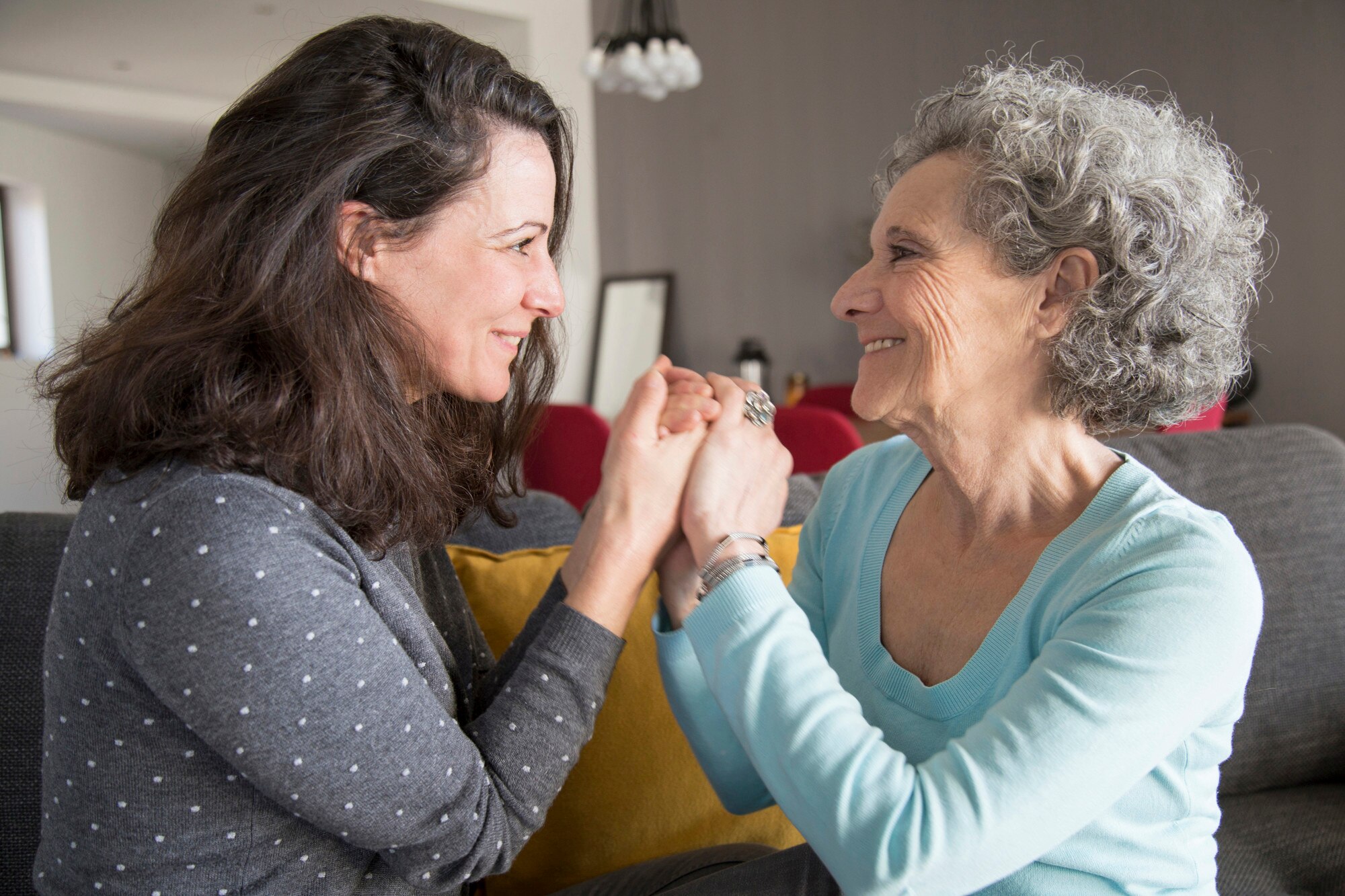When a loved one receives a dementia diagnosis, families face a journey filled with complex emotions and difficult decisions.
We understand that providing elder care for dementia patients requires specialized knowledge, abundant patience, and unwavering compassion.
Fortunately, specialized approaches exist that can make a meaningful difference for both the person with dementia and those who care for them.
With these innovative and personalised elder care approaches, the focus is not just on addressing the physical needs of those with dementia. It is equally important to preserve their dignity and quality of life throughout every stage of their condition.
Understanding Dementia and Its Unique Care Challenges
Elder care for dementia requires recognizing that dementia affects far more than memory; it influences how a person communicates, processes information, and navigates daily life.
Most families navigating dementia care encounter challenges such as:
- Communication difficulties that evolve as the condition progresses.
- Unexpected behavioral changes, including agitation or wandering.
- Safety concerns, such as judgment and spatial awareness, decline.
- Resistance to personal care routines due to confusion or discomfort.
- Emotional stress affects both the person with dementia and their caregivers.
What makes dementia care particularly complex is that needs change over time, requiring adaptable approaches that maintain dignity while addressing evolving abilities.
Each person’s experience is unique, which makes personalized care approaches essential.
Elder Care for Dementia in Seniors: Personalized Approaches
Despite cognitive changes, a person’s need for respect and dignity remains constant.
Effective elder care for dementia incorporates these dignity-preserving techniques that focus on the whole person, not just their medical condition.
Person-Centered Dementia Care Techniques
Person-centered care for dementia means seeing beyond the diagnosis to recognize the unique individual who has lived a full life with personal preferences, accomplishments, and relationships.
This approach includes:
- Incorporating elements of their life story into daily care routines.
- Adapting activities to current abilities rather than highlighting limitations.
- Offering choices whenever possible to maintain a sense of control.
- Creating predictable routines that provide security while allowing flexibility.
Research consistently shows that person-centered dementia care reduces anxiety, decreases the need for medication interventions, and significantly improves quality of life for those receiving elder care for dementia.
Creating Dementia-Friendly Environments
The physical environment plays a crucial role in how someone with dementia experiences daily life.
Thoughtful modifications can reduce confusion while promoting independence:
- Clear signage that combines words and images for important locations.
- Removing unnecessary clutter while maintaining a familiar, homelike atmosphere.
- Minimizing background noise that can trigger confusion or agitation.
- Using contrasting colors to improve visual recognition of objects and boundaries.
- Installing appropriate safety features that don’t feel institutional.
These environmental adaptations help people with dementia navigate their surroundings with greater confidence, a key component of dignity-preserving elder care for dementia.
Read more: Dementia-Friendly Environment Checklist
Effective Communication Strategies for Dementia Care

As dementia progresses, communication becomes both more challenging and more essential.
Specialized techniques make a significant difference:
- Approach gently from the front to avoid startling.
- Speaking clearly using simple, direct sentences.
- Allowing extra time for processing information.
- Using supportive body language and appropriate touch.
- Validating emotions rather than correcting misperceptions.
These communication strategies help maintain meaningful connections even when verbal abilities decline, an essential aspect of compassionate elder care for dementia patients.
Managing Challenging Behaviors in Dementia Care
When dementia leads to behaviors like agitation, repetitive questions, or resistance to care, it’s important to remember these are often expressions of unmet needs or responses to overwhelming situations.
Effective approaches include:
- Observing patterns to identify potential triggers.
- Using gentle redirection rather than confrontation.
- Creating calming sensory experiences based on individual preferences.
- Maintaining a patient, calm presence during difficult moments.
This approach preserves dignity by addressing underlying causes rather than simply reacting to behaviors, creating more positive experiences for everyone involved in dementia care.
Related: How Companion Care Transforms Daily Routines into Meaningful Moments
The Partnership Between Families and Professional Caregivers
Families provide essential context and history in elder care for dementia patients, while professional caregivers bring specialized skills and objective support.
This partnership creates the most effective approach to dementia care:
What families bring to dementia care:
- Deep knowledge of the person’s preferences, history, and personality.
- Emotional connection and established trust.
- Insights about subtle changes in condition or behavior.
- Advocacy for their loved one’s needs and wishes.
What professional caregivers bring to dementia care:
- Specialized training in dementia care techniques.
- Fresh energy and dedicated focus.
- An objective perspective on changes and challenges.
- Experience with various stages and manifestations of dementia.
- Professional boundaries that help maintain dignity.
Supporting this partnership should include:
- Open communication between families and professional caregivers.
- Clear roles and expectations for all involved.
- Regular updates and care plan adjustments.
- Respite options to prevent family caregiver burnout.
- Educational resources about dementia progression.
When families and professional caregivers work together effectively, they create dignified dementia care plans that honor the individual’s preferences while addressing evolving needs with expertise and compassion.
Cultural Considerations in Dementia Care
Cultural background significantly influences how people experience dementia and what constitutes respectful care.
Culturally-sensitive elder care for dementia includes:
- Honoring cultural practices around meals, personal care, and daily routines.
- Incorporating meaningful traditions and celebrations.
- Understanding cultural perspectives on aging and cognitive changes.
- Ensuring care providers have cultural competency training.
- Providing language services when needed for clear communication.
Cultural awareness strengthens dementia care by recognizing that identity and heritage remain important even as cognitive abilities change.
Technology in Dementia Care: Finding the Right Balance
Today’s innovative technologies offer promising solutions for elder care for dementia patients, when implemented thoughtfully:
- Location technology that balances safety with freedom of movement.
- Medication management systems that reduce stress around treatment adherence.
- Therapeutic programs offering engagement through familiar activities.
- Interactive tools that support communication and connection.
- Smart home features that enhance safety discreetly.
The key is implementing technology that enhances human care rather than replacing it, focusing on solutions that support both practical needs and emotional well-being.
Adapting Elder Care as Dementia Progresses
Effective dementia care evolves as the condition progresses. Understanding the different stages helps families prepare and adapt:
Early Stage Dementia Care
- Supporting independence while introducing helpful structures.
- Implementing memory aids and organizational systems.
- Addressing important legal and financial planning.
- Establishing consistent routines and care relationships.
Middle Stage Dementia Care
- Balancing supervision with meaningful activity participation.
- Providing assistance with personal care while preserving privacy.
- Developing compassionate responses to behavioral changes.
- Ensuring regular respite for family caregivers.
Late Stage Dementia Care
- Implementing specialized techniques for nutrition and comfort.
- Maintaining physical mobility through gentle movement.
- Offering sensory engagement through music, touch, and familiar scents.
- Focusing on comfort and quality moments.
This stage-appropriate approach ensures elder care for dementia patients remains dignified and responsive throughout the progression of the condition.
The Critical Role of Professional Caregivers in Dementia Care

Professional caregivers trained specifically in dementia care bring invaluable expertise to elder care for dementia patients.
Unlike general elder care, dementia care requires specialized knowledge, exceptional patience, and unique communication skills that professional caregivers develop through dedicated training and experience.
Qualified dementia caregivers provide numerous benefits:
- Specialized knowledge of dementia progression and appropriate interventions.
- An objective perspective that family members may struggle to maintain.
- Consistent application of evidence-based dementia care techniques.
- Emotional resilience they developed through professional training.
- Dedicated attention without competing responsibilities.
- Experience-based intuition about addressing subtle changes in condition.
The relationship between a person with dementia and their caregiver becomes increasingly important as the condition progresses.
Professional caregivers trained in dementia care understand how to build trust, establish meaningful connections, and provide support that respects the individual’s dignity throughout their journey.
Finding the Right Elder Care Support for Dementia
When evaluating care options for a loved one with dementia, consider these essential factors:
- Specialized dementia training for all caregivers involved.
- Caregiver consistency to build trust and familiarity.
- Appropriate staffing ratios that allow for personalized attention.
- Care philosophy that emphasizes dignity and individual worth.
- Family involvement opportunities in care planning and decisions.
- Environmental considerations for both safety and comfort.
The caliber and training of caregivers are particularly crucial factors in dementia care.
Even the most thoughtfully designed care plan depends on skilled implementation by caregivers who understand dementia’s unique challenges.
Read more: 5 Ways Companion Care Supports Elderly with Dementia
Supporting Family Members Caring for Elders
Providing dementia care can be both rewarding and challenging.
If you’re caring for someone with dementia, remember that self-care isn’t optional; it’s essential. Caregiver well-being depends on:
- Taking regular breaks from caregiving responsibilities.
- Connecting with others who understand your experience.
- Practicing effective stress management techniques.
- Acknowledging the complex emotions that arise along the way.
- Recognizing the meaningful difference you’re making.
Quality dementia care includes supporting not just the person with dementia, but those providing their care as well.
Conclusion: The Difference Professional Caregivers Make in Dementia Care
While dementia changes cognitive function, it doesn’t diminish a person’s worth or right to dignified care.
Quality elder care for dementia focuses on preserving abilities rather than dwelling on losses, celebrating present moments while honoring the person’s complete identity.
Professional caregivers specifically trained in dementia care make this possible by bringing specialized skills, compassionate presence, and dedicated focus to each unique situation.
At Kizuna, we understand the complexities of the dementia care journey. That’s why we work with caregivers who bring compassion and experience in supporting individuals living with dementia.
They become trusted companions who understand how to navigate the challenges of dementia while finding moments of connection and joy.
The right caregiver can transform the dementia care experience for both the individual and their family, providing not just assistance but peace of mind.



